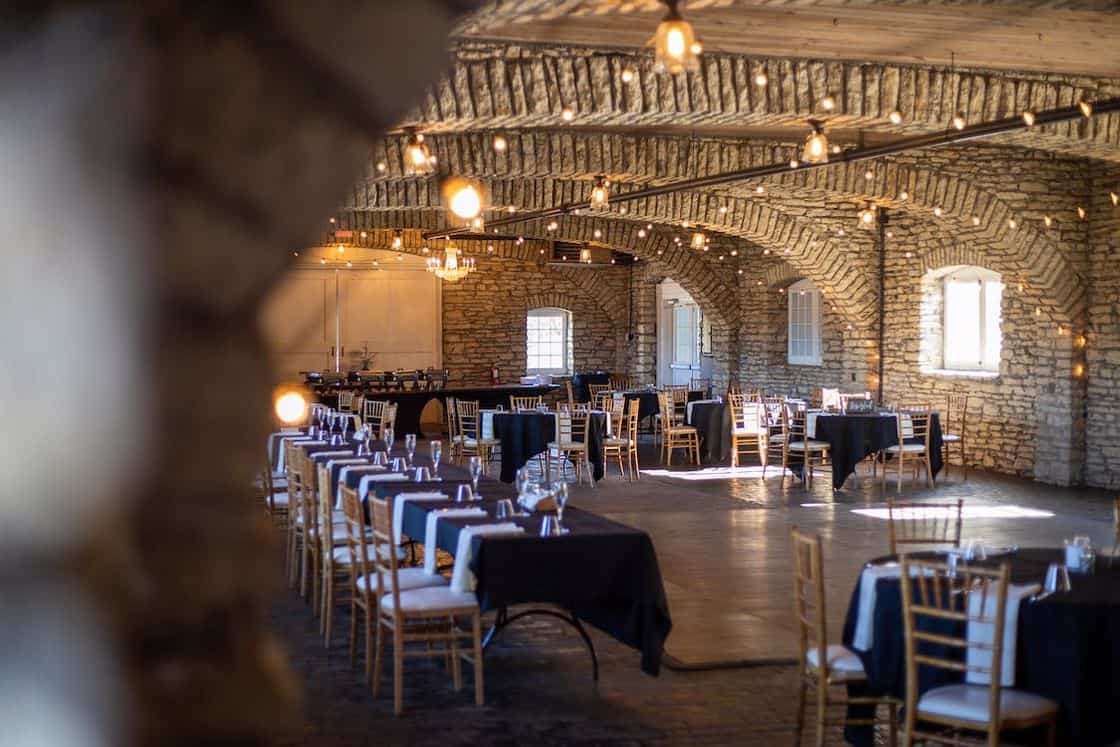Just How Event Production Functions: A Comprehensive Look at the Process
Event production is a complex and organized process that requires careful planning and execution. It starts with developing clear purposes and comprehending the target market. Each action, from budgeting to place option, plays an essential function in making certain success. As the procedure unravels, various aspects must line up flawlessly. Yet, the subtleties of this detailed operation often go undetected. What are the essential stages that add to a remarkable event?

The Preliminary Planning Stage
When starting on event production, cautious preparation is vital to guarantee a successful outcome. The initial drawing board serves as the structure for all succeeding initiatives. Throughout this stage, event producers have to specify the event's objective and goals plainly. Identifying the target audience helps tailor the experience and messaging, assuring importance and engagement.Producers must also consider the event format, whether it be in-person, digital, or crossbreed, as this will certainly influence different logistical elements. Selecting a suitable date and venue is crucial, as it affects availability and availability.Furthermore, setting up a reliable group is basic for separating obligations and improving interaction. Establishing a timeline with milestones guarantees all jobs are finished on time. This stage includes extensive research, consisting of determining prospective challenges and devising approaches to alleviate risks. Inevitably, a well-structured preliminary preparation phase establishes the tone for an effective event production journey.

Budgeting and Resource Appropriation
In event production, efficient budgeting and source allowance are important for success - event production charlotte. Establishing economic specifications establishes the foundation for all succeeding decisions, while source circulation approaches ensure that every part of the event is sufficiently sustained. Together, these aspects help preserve control over expenses and optimize making use of offered sources
Establishing Financial Parameters
Developing financial specifications is essential to the success of any event production, as it sets the foundation for efficient budgeting and source allotment. This process starts with specifying the general spending plan, which encompasses all elements of the event, including location prices, catering, and advertising. By recognizing readily available funds, event planners can prioritize expenditures and designate resources accordingly. On top of that, it is vital to carry out detailed marketing research to anticipate prospective expenses and identify funding resources, such as sponsorships or ticket sales. Developing clear financial parameters likewise help in threat monitoring, enabling coordinators to allot backup funds for unanticipated expenditures. Inevitably, a well-defined budget plan serves as a roadmap, guiding the event production team towards achieving their goals while preserving financial control.
Resource Distribution Techniques
Efficient source distribution techniques are essential for taking full advantage of the effect of an occasion while sticking to budget plan restrictions. Successful event production calls for a precise method to budgeting and source appropriation. Organizers need to prioritize important aspects such as venue, food catering, and modern technology, making certain that funds are designated to areas that boost guest experience. A comprehensive budget needs to detail anticipated costs and identify locations for potential price savings, such as negotiating with vendors or checking out sponsorship opportunities. In addition, tracking expenses throughout the preparation procedure helps prevent overspending. By using tactical resource circulation, event manufacturers can provide an unforgettable experience while maintaining monetary obligation, ultimately adding to the general success of the event.
Venue Option and Logistics
Selecting the appropriate location is vital to the success of any event, as it establishes the phase for the overall experience. Place option involves reviewing numerous aspects, including ability, accessibility, and place. Organizers should take into consideration the target audience and the nature of the event, making certain the place lines up with the event's goals.Logistics play a substantial function in this process, entailing arrangements for seating, audiovisual equipment, and catering solutions. A well-chosen place should assist in smooth circulation for participants and staff, enhancing engagement.Additionally, examining possible places for features like car park, restrooms, and fire escape is necessary for safety and security and comfort. The timeline for safeguarding the place is likewise critical, as prominent places might schedule quickly - event production charlotte. Consequently, comprehensive planning and timely implementation can ultimately contribute to a smooth event experience, making location option and logistics basic parts of effective event production
Innovative Principle Growth
While the place establishes the physical phase, imaginative idea advancement shapes the event's identity and narrative. This procedure starts with determining check my blog the event's function and target market, allowing event manufacturers to create an engaging style that resonates with guests. Brainstorming sessions typically consist of diverse point of views, fostering cutting-edge concepts that line up with the event's goals.Once a theme is established, visual elements such as color palettes, signs, and decoration are developed to enhance the total atmosphere. Storytelling strategies might also be integrated to create an appealing journey for participants, ensuring a remarkable experience. In addition, factors to consider relating to entertainment, activities, and interactive components are lined up with the chosen idea, strengthening the style throughout the event.Ultimately, efficient imaginative idea growth assurances that every element of the event works cohesively, leaving an enduring impression on participants and meeting the event's goals. This fundamental work lays the foundation for subsequent planning and implementation stages.
Collaborating With Suppliers and Vendors
Successful event production rests on reliable cooperation with vendors and vendors. Selecting reputable companions, discussing agreements efficiently, and ensuring timely deliveries are critical action in this process. Each of these variables contributes considerably to the overall success and smooth implementation of an event.
Choosing Reliable Partners
Exactly how can event organizers assure a seamless production experience? Choosing trusted partners is crucial in accomplishing this objective. Event planners should carry out thorough research to determine vendors and distributors with a tried and tested record of quality. This consists of examining references, examining profiles, and examining client comments. Planners must focus on partners who show professionalism, prompt interaction, and a determination to work together. Structure solid partnerships promotes trust fund and enables quick analytical during the event. Additionally, it is useful to select regional vendors that recognize the place and local logistics. Ultimately, a successful event depends upon the synergy between coordinators and their partners, making certain that every facet of production runs efficiently and efficiently.
Working Out Agreements Properly
Reliable settlement of contracts is an important step in the collaboration in between event planners and their vendors and vendors. This procedure entails clear interaction of expectations, deliverables, and timelines. Planners need to perform complete research study on market rates and industry standards to develop a standard for negotiations. It is necessary to develop a collective environment, motivating open discussion regarding terms, prices, and potential backups. Planners need to additionally focus on recognizing the vendor's abilities and limitations to straighten their requirements properly. Adaptability can lead to equally valuable contracts, fostering long-lasting partnerships. Crafting distinct contracts that include specific performance metrics can aid ensure accountability, eventually leading to successful event execution and satisfaction for all celebrations involved.
Making Certain Timely Shipments
Prompt distributions are important for the smooth implementation of any kind of event, requiring thorough cooperation between coordinators and their suppliers and suppliers. Efficient communication is crucial, as it aids develop clear expectations pertaining to delivery routines, quantities, and certain needs. Organizers frequently produce thorough timelines to outline vital milestones, guaranteeing all parties stay straightened throughout the process. Routine check-ins with suppliers can help recognize potential delays early, enabling proactive services. Additionally, building strong relationships with reputable vendors promotes trust fund and accountability, which can lead to much better service and prioritization. By focusing on these collective efforts, planners can decrease disturbances, consequently enhancing the total efficiency of event production and guaranteeing that all needed products and services show up as prepared.
Marketing and Promotion Techniques
While arranging an occasion, the success of advertising and marketing and promo methods can considerably influence presence and involvement. Reliable methods commonly consist of a mix of electronic advertising and marketing, conventional marketing, and grassroots outreach. Utilizing social networks systems permits real-time interaction and targeted advertising and marketing, reaching details demographics efficiently. Email advertising and marketing campaigns can additionally involve prospective guests with customized content and reminders.Collaborations with influencers or sector leaders can also boost reliability and broaden reach. Creating engaging material, such as video clips or blogs, helps to produce buzz and suffer interest leading up to the Web Site event. Additionally, leveraging early-bird discount rates and unique go to this web-site perks can incentivize ticket purchases.Promoting with traditional channels, such as posters or local media, remains appropriate, particularly in community-focused occasions. A complete method that integrates several methods warranties optimum presence and interaction, inevitably adding to the event's success and the development of an unforgettable experience for participants.
On-Site Execution and Management
On-site implementation and monitoring are essential components that establish the overall success of an occasion. Effective sychronisation throughout the event guarantees that all aspects straighten with the prepared schedule. Event managers look after logistics, including supplier coordination, devices arrangement, and guest solutions. Keeping track of timelines and dealing with any type of unforeseen issues are basic for keeping a seamless experience.The staff plays a considerable function, as qualified employees are responsible for numerous jobs such as registration, info dissemination, and technological assistance. Interaction amongst staff member is necessary; it cultivates a collaborative atmosphere and makes it possible for fast resolution of challenges.Additionally, safety methods need to be followed, protecting the wellness of all participants. Post-event assessments are likewise part of on-site management, providing insights for future renovations. By concentrating on these elements, event manufacturers can develop remarkable experiences that fulfill or surpass attendee expectations while accomplishing the event's goals.
Frequently Asked Concerns
Just how Do I Select the Right Event Style?
Selecting the ideal event style includes considering the target market, event function, and place. Looking into present patterns and collecting input from stakeholders can also motivate creative concepts that resonate and develop an unforgettable experience.

What Prevail Mistakes in Event Production?
Typical errors in event production commonly consist of poor planning, poor communication amongst team participants, budget mismanagement, neglecting to think about the audience's needs, and falling short to carry out a comprehensive post-event assessment for future improvements.
How Can I Determine Event Success?
To determine event success, one can examine guest complete satisfaction, engagement degrees, budget plan adherence, and post-event feedback. Key efficiency signs, such as ticket sales and social media interactions, likewise offer beneficial insights right into general performance.
What Should I Do if It Drizzles on the Event Day?
In case of moisten the day, the organizer should apply contingency strategies, such as securing outdoors tents or moving tasks indoors. Interaction with attendees concerning changes is vital to assure a smooth experience in spite of climate challenges.
Just How Can I Guarantee Participant Engagement During the Event?

Comments on “What people usually ask about event production charlotte—answered here”